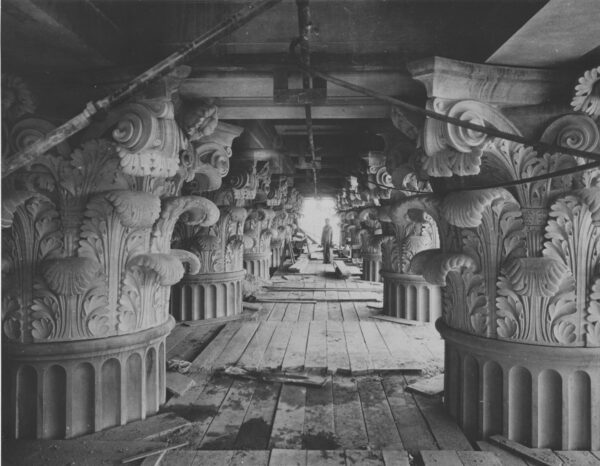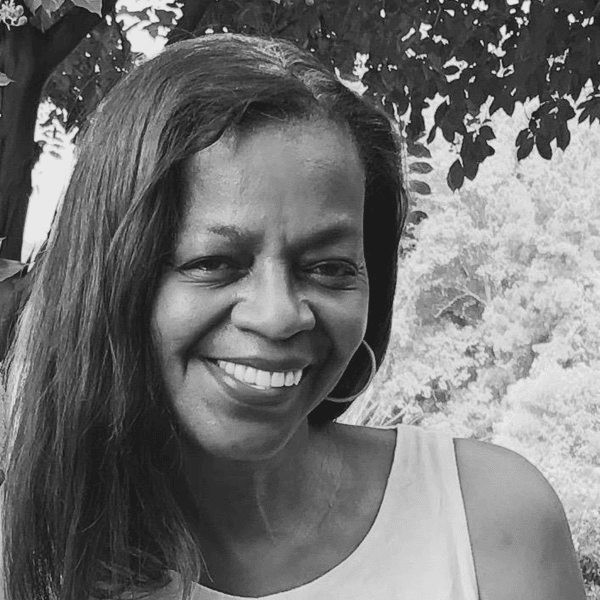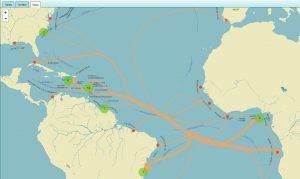
A worker stands between the columns during the construction of the National Archives building in Washington, DC, in 1935. National Archives/public domain
The archive has never been what its most fervent champions desired it to be. Despite its appearance of stateliness and decorum, its inner life often betrayed any sense of good taste or decency. The noisiness of everyday life intrudes unwanted—the rumblings of kingdoms and dynastic rivalries, gender conflict, imperial conquest, revolution, peasant and slave rebellions, and religious conflict impervious to efforts at containment or constraint. For historians of slavery, as for scholars in other fields, the archive is punctuated with noise and less than majestic matter. Though loath to admit it, the archive cannot help being a rowdy, boisterous place. Here, enslaved people who are not supposed to be “seen” or “heard,” raise their voices and are spectacularly visible.
This address pays homage to the spectacular visibility to be found in “paper tracings.” Disregarded by those who left them, the tracings spill out of archival folders and boxes stuffed with the letters, diaries, and papers of slaveholders, merchants, and bankers. Here, unchecked by the expected decorum, enslaved people run away and give themselves revolutionary names like “North Star.” Here, a refugee given the option to work as a domestic servant for a northern white family chooses “to do for herself.” As scholars, we cannot but wish for many more such voices, but in their absence we might linger in the archives where we do find them, linger with “paper tracings” that leave far more than a trace.
The presidential address will take place on Saturday, January 4, 2025, from 5:30 to 6:30 p.m. in the New York Hilton’s Trianon Ballroom.
This work is licensed under a Creative Commons Attribution-NonCommercial-NoDerivatives 4.0 International License. Attribution must provide author name, article title, Perspectives on History, date of publication, and a link to this page. This license applies only to the article, not to text or images used here by permission.



